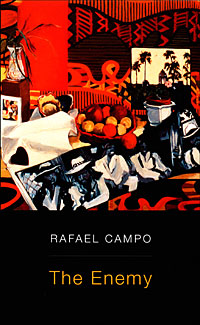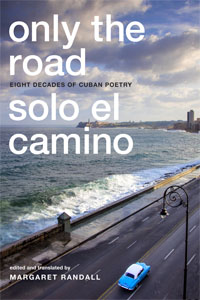Our third poem of the week this April is “Opening” by Alexis Pauline Gumbs. Dub: Finding Ceremony, in which “Opening” is published, takes inspiration from theorist Sylvia Wynter, dub poetry, and ocean life to offer a catalog of possible methods for remembering, healing, listening, and living otherwise.
if you gathered them they would be everyone.
gather them.
recognize in them your jawline, your wet eyes, your long-fingered
hands, seeking what but this multitude. if you gathered them they
would not fit on this island. they would spill back into the ocean
whence they came. when you gather them they will have fins and
claws and names you do not know.
gather them anyway.
some will look you in the eye, some are too microscopic to see. if you
don’t gather them all you will never be free. if you gathered them you
could not hold them, scold them, demand back what you think is
lost. gather them today or your soul is the cost. gather the ones who
sold and who bought and who tossed overboard. gather the erstwhile
children in the name of the lord. gather the unclaimed fathers, the
ones with guns and with swords. gather them up. with your hands.
with your relationship to land. with your chin set. you are not done
yet. you never will.
gather them more. gather them still.
they will unfound you and surround you unfind you and unwind you
travel to you unravel through your own needle. gather the thread.
collect your dead.
put yourself in the center and draw them in. stand where you standing which is not under and not over. you. not gonna get over it. and
where you stand is not always standing either, is it? sometimes quicksand sometimes bended knee, very often that cross-legged thing you
do, sitting on the floor or hugging your own legs like they were people. be where you are and draw them to you. you might need to move
your hands, one of those legs or a book from blocking your heart.
that would be a good start. put your arms out like if you were floating in water. daughter. they know where to find you.
this is what we did. we put everything where it needed to go. we
knew about need by intuition. we knew about need by experience.
we knew about need by not needing what we thought we needed. we
needed you to know something else. so this is what we did. we knotted up our knowing with our needing. we kneaded back our needing
into notthisnotthennotagain and we knew the net of our needing,
the need of our knowing would wander and would wait. we knew it
like we knew salt. we knew it like we knew bait. we know it like we
know you. don’t hesitate.
first, the sound. you hear it even if no one else does. even if you wake
and already don’t remember. second, the seconds. you feel the up-tick
in your heart bringing you back into time. third, the rise. as if you are
pulled vertical across the floor and before you know it you have taken
several steps. it is a minute or so before you are you as you know you.
in the rising you could be any of us.
save the top of your head for the water. don’t let the nonsense burn it
out. cleanse with salt and coolness. thousands of years ago it was a
spout. place your head in places worthy. place your hands over your
heart. bless yourself with generations. that’s a start.
what the coral said:
breathe. breathe. breathe. sing. let that water move within you. let it
be you. let your every cilia dance you into healing. let the warm salt
water brighten you. your tears. sleep. and when you dream of working, sleep again. sleep until you dream of floating. dream until your
edges soft. dream until you birth yourself in water singing with the
bones of all your lost. dream until you breathe not from your mouth,
not from your nose but through your hair and through your skin.
dream until you claim the ocean. breathe until you feel no need to
swim. breathe until your dreams flow out your brain. breathe and let
them in your heart. breathe and we will call you again. that’s a start.
there are very few things that you must do. this is one. this will show
you the others. there is a difference between assignment and need.


 It’s currently National Poetry Month, so we are offering a poem each Monday throughout April. Today’s poem is from Leah Zani’s forthcoming book,
It’s currently National Poetry Month, so we are offering a poem each Monday throughout April. Today’s poem is from Leah Zani’s forthcoming book, 


